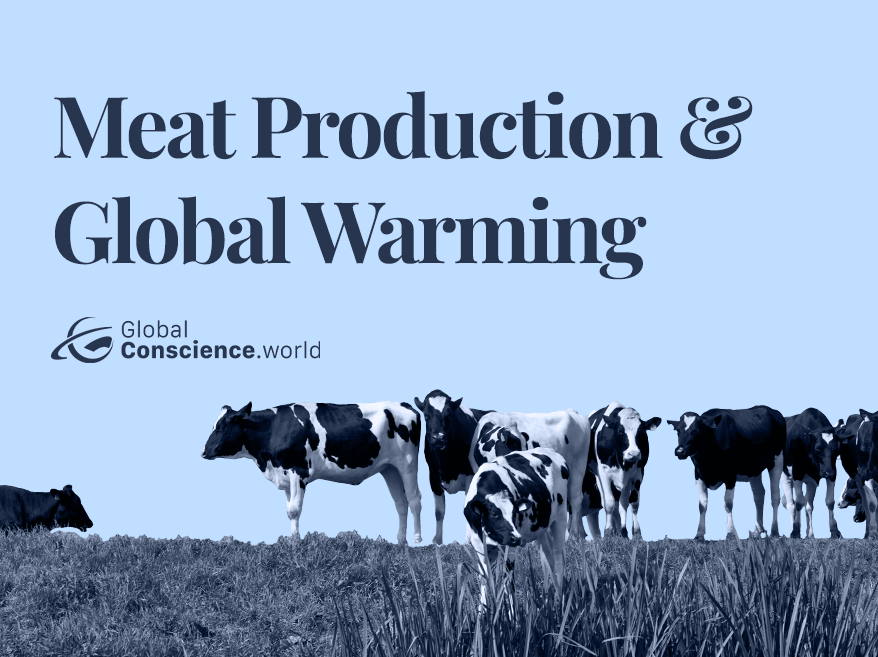Meat Production and Global Warming

Meat Production and Global Warming
With the emergence of vegan culture, it is safe to say that hundreds of people a day are choosing meatless options. From the impossible whopper from Burger King to chicken fried broccoli, no meat is the new black. This is largely due to the unethical practices of the meat industry, but a lesser-known effect of meat production is climate change.
How meat production contributes to global warming
Cattle, such as dairy cows, are the primary sources of beef. These cows are often kept in unethical conditions affecting the quality of the meat and having adverse effects on the environment. Cows produce large amounts of greenhouse gas and methane as a leftover from their digestive system. According to the UN’s Food and Agricultural Organization (FAO), meat and dairy on its own are responsible for 14.5% of global greenhouse gas emissions.
As the demand for meat increases so does the demand for land to host the cattle. Deforestation and the destruction of other natural habitats are constantly in danger of being taken down to make way for meat production. It takes 16 pounds of grain to produce one pound of beef.
This also negatively affects indigenous civilizations due to massive deforestation, land grabbing, and the modern-day slaving of people to work the lands.
Meat productions vs Vegetable production
One serving of meat is linked to 20 times more greenhouse gas emissions as compared to one serving of vegetables. The production of meat also takes up to 100 times more land, affecting the environment 35% more.
According to a study done by the University of Minnesota and Oxford University, processed meats account for the second highest mean impact on acidification, GHG emissions, land use, and the third highest mean impact for eutrophication.
How to eat less meat
In general, if it’s healthy for humans, it’s also healthy for the environment. Here are a few tips for cutting down on meat consumption. Making cleaner, more sustainable dietary choices will help us all cut down on gas in our bodies and in our atmosphere.
Take it one step at a time.
You don’t have to go vegan overnight. Start by having one meatless meal a week and experimenting with seasonings and meat substitutes like tofu and other vegetarian swap-outs. You won’t know what you like until you try it!
Try it with a friend.
Partnering up with a friend or two can provide a great support system for choosing a meatless lifestyle. You can make meal prep plans together, discover new recipes and overpraise when completing goals.
If you do eat meat, know its source.
If you have been eating meat all your life, you are bound to have cravings that you may not be able to resist. Although, before you buy that t-bone or New York Strip, check out the label to see if it is ethically sourced and cruelty-free. Most supermarkets will have their beef split up between organic and non-organic.
Source :
GCW


